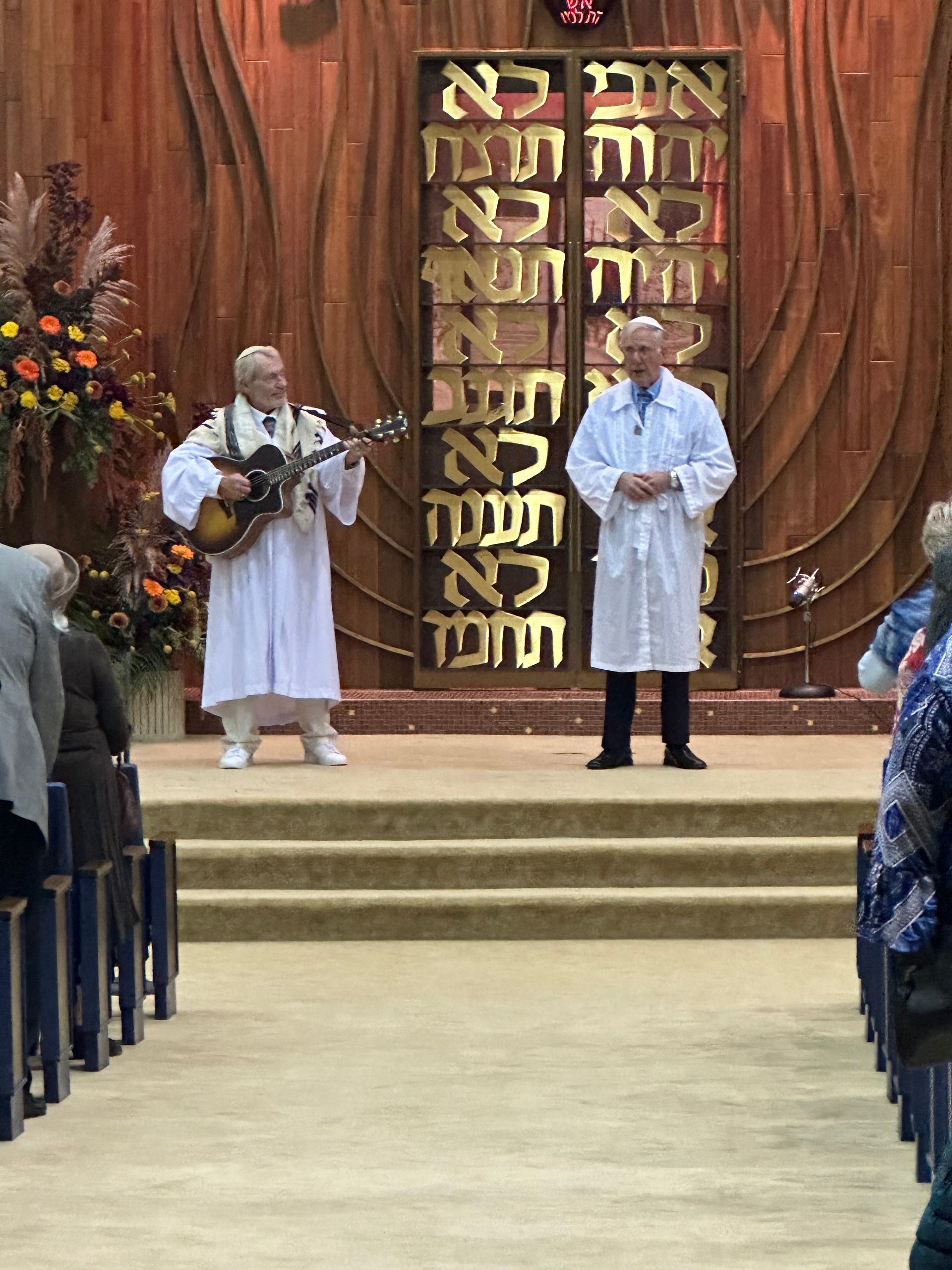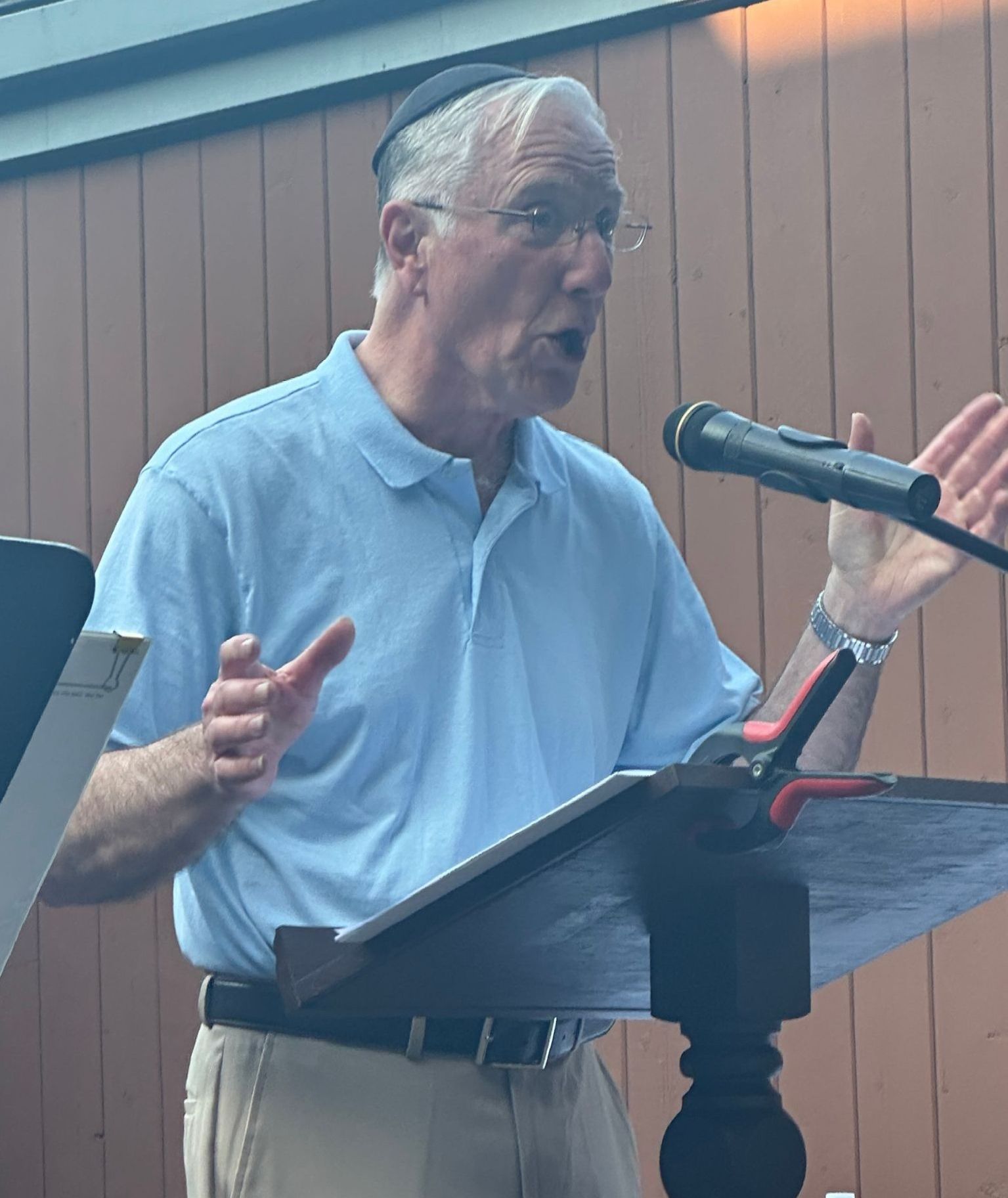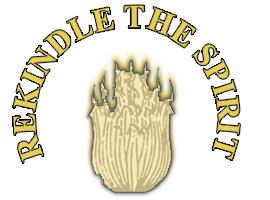Rabbi
From My Desk 2026-02 Thinking about the High Holidays in January
Long ago, our rabbinic sages recognized the difficulty of praying meaningfully. They understood that prayer requires thoughtfulness, attention and desire. Thoughtfulness, because the Supreme Being deserves something more than some quick superstitious incantations, or unintelligible mutterings thrown his way. Attention, because addressing the Lord of the Universe should require at least as much focus as we would give to a human, mortal monarch. And, desire, because G-d has given us free will to accept or deny His existence (atheists aren’t punished by G-d’s hurling lightning bolts at them) and to foster or quash any relationship with Him (G-d doesn’t force us to love Him any more than a man forces a woman to love him). There are those who live an entire lifetime without the desire to establish any relationship with the Creator. (Take for example, that group of atheist scientists whose “religion” is proclaiming the purposelessness of the universe.)
But, the vast majority of Jews desire to speak with G-d. To a greater or lesser extent, anyone who joins a synagogue, or at least attends a High Holiday service, is probably expressing a need to feel open to some sort of relationship with G-d, however brief. And, for those who regularly enter a synagogue to pray, most want to relive (perhaps subconsciously) that brief experience over and over again. Of course, there are those who come to a synagogue for other valid reasons, but the synagogue represents the primary place Jews can congregate knowing that that place is also G-d’s home. A synagogue is where lively congregational prayer is most likely to occur.
But fostering a genuine feeling for prayer is not easy. Unless one is used to praying on a regular basis, hoping for an instant burst and lasting effect of "prayerful emotion” by entering a synagogue and placing a prayer book in your lap is as likely to produce weak results as is entering a gym, and hoping that watching those who are exercising will build your muscles. One has to be actively using the “spiritual gym” on a regular basis, in order to strengthen the “spiritual muscles”. Even then, the task is not easy.
And, the High Holidays present this problem in even starker relief. The prayer service is longer, and more unfamiliar, than daily and weekly prayer. The problem is big. Can anything be done about it?
Of course there are several solutions, just like most other problems. My suggestion is that we, as a congregation, consider an approach that may help us, in particular, as Temple El Emeth members. The path I suggest is not the only one, but, after speaking with our Religious committee members, it is an idea worth trying for the upcoming High Holidays. Here’s the plan:
1. On the first day of Rosh Hashanah, we will aim to create a Musaf experience, rather than a formal service. The reason we should try this approach is that a large number of members are unfamiliar with the Hebrew texts (even in English translation) and underlying theological messages that the machzor employs. Short “thought pieces” should increase our understanding of the messages, and will prompt us to be more personally involved in the holiday liturgy. Taking the ideas into our own hands and asking questions (as opposed to listening to a cantor chant Hebrew passages) may be more inspiring (and, perhaps, more challenging) than what we have become used to in the past. In order that the service not be lengthened, I will probably not deliver a sermon that day. Rather, these thought pieces will relate to major themes of the holiday. There will probably be music interspersed with the readings. (More on this in later columns).
2. I expect that we will have our customary traditional service on the second day of Rosh Hashanah, although we may wish to incorporate some of the “novel” approach, if it is well received on the first day.
3. Kol Nidrei will be handled much the way it has been in the past, with a more traditional approach and a sermon. I believe the congregation expects and deserves to hear something of value from the rabbi that evening. Yom Kippur is, at this writing, still under construction. I hope to have more information in upcoming articles.
Finally, please note I have confidence in our ability to create something different and appealing this coming High Holiday season. I am hopeful that this “experiment” will be a success. I encourage all of us to keep an open mind, think about our religious practices in an innovative way, and work with me on creating a High Holiday experience that will be memorable and enjoyable for all.
Rabbi Seth Sternstein






